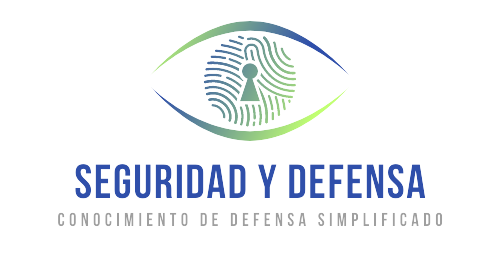Did you know that more people search for answers about law than for symptoms of food poisoning? And guess what—just like Googling your stomach cramps can spiral into “you’re dying,” looking for legal help on random sites can land you in serious mess.
It’s easy to type a question into a search bar and feel like you’re a few clicks away from solving a legal problem. But let’s be real—most people don’t know if they’re reading sound guidance or some keyboard warrior’s opinion dressed up with big words and bold claims.
Time to call out the myths. Time to slap the nonsense out of those flashy posts and explain what actually makes sense.
Key Highlights:
- Not all advice on forums, blogs, or social media is accurate.
- Forums attract opinions, not expertise.
- AI tools can detect low-quality content—use them.
- State laws differ—what’s true in Texas may be false in Oregon.
- Free info often skips key context that matters in real cases.
- Lawyers exist for a reason—experience and training matter.
- Bad advice can cost you money or jail time.
- Myth-busting saves you more than stress—it protects your rights.
Too Many People Trust Forums Like They’re Courtrooms

You’d think Reddit was the Supreme Court based on how many people cite it during legal arguments. But forums don’t filter nonsense. Anyone can say anything, and they do. Someone’s cousin’s roommate’s DUI experience doesn’t apply to your custody battle. Yet people treat it like gospel.
Let’s say you’re reading a 3-sentence thread about tenant rights. Looks legit. It uses terms like “constructive eviction” and “lease violation.” But who wrote it? A lawyer? A landlord? A guy who once got evicted and now hates landlords?
Here’s the fix. Use a content checker like detector de ia. If it smells like it came out of a chatbot or spam-factory, it probably did. Trust what real professionals write—ideally, ones with names, credentials, and skin in the game.
The Most Common Legal Myths That Keep Circulating on the Internet
Let’s go straight for the jugular. Below are some fake facts that float around like gospel truth, even though they belong in a dumpster fire.
- “If the cop doesn’t read your Miranda rights, the arrest is invalid.” Nope. That just affects what they can use in court—not whether the arrest sticks.
- “You have 3 days to cancel any contract.” Wrong. That applies to very specific cases like door-to-door sales. Not gym memberships or car leases.
- “You can’t get sued if you didn’t sign anything.” Cute, but also false. Actions can bind you. Oral agreements can count. Ever heard of implied contracts?
- “I’m protected by free speech, so I can say what I want.” You might be, but defamation, slander, and threats all land people in court. Every day.
- “All public defenders suck.” Unfair and untrue. Some are incredible. Some are overloaded. The issue is the system—not the role.
See the pattern? One-size-fits-all answers don’t apply to legal matters. Context changes everything.
Not All Lawyers Have TikTok Channels—And That’s a Good Thing

Sure, some lawyers explain concepts on social media. Props to them. But many actual experts don’t post at all. Why? Because real law work eats time, and they’re out there saving people’s futures, not chasing likes.
So if your only source is a 20-second Reel from a dude in a suit with neon text popping up every three seconds, pump the brakes. Flash doesn’t equal substance.
Want a better approach?
- Search the lawyer’s bar registration. If they don’t exist, they don’t count.
- Look up their actual firm, not just a username.
- Read their disclaimer—credible ones always have one.
The Internet Doesn’t Know Your Situation—It Just Pretends It Does
No blog knows your background, your location, or the details that shift an entire case. Yet posts will say “Just do this!” like you’re a robot with one problem.
Here’s the reality: laws change across states. Deadlines vary. Procedures change each year. Even courts in the same state don’t always play by identical rules.
A blog might say, “Always file Form X within 10 days.” But what if you live in New York and the rule is 30 days there? Congrats, now your case is toast because you followed cookie-cutter advice.
Stop treating Google like your lawyer. It doesn’t care about consequences.
Bad Advice Isn’t Just Dumb—It Can Wreck Your Life
Let’s say you followed a Reddit post and ignored a court summons. Or you took a YouTube tip and skipped out on paying a debt, thinking it “wasn’t enforceable.” Now you’re staring at fines, garnished wages, or even jail.
Mistakes in this arena carry weight. No one’s going to pat your head and say, “Oops, online advice failed you.”
You face the consequences. Alone. With real penalties.
Pro tip: when the stakes involve your money, job, record, or freedom, stop being cheap with your research.
How to Tell if a Source Is Legit Without a Law Degree

You don’t need a JD to spot BS. Use your head and follow these pointers:
- Check the author’s name. No author = red flag.
- Look for citations. Real lawyers cite cases or laws.
- Watch for hard sells. “Click here now to win your case!” = trash.
- Be wary of extreme promises. Law isn’t magic. “Guaranteed outcome” = nonsense.
- Check the date. Laws change. Old posts can mess you up.
If it sounds too easy, it probably ignores something crucial.
AI Can’t Replace a Lawyer—But It Can Warn You About Trash
Lots of AI tools now write entire blogs. Helpful sometimes. But risky in law.
AI doesn’t think. It doesn’t know state laws or updates. It fills space with things that “sound” right. But sounding right isn’t the same as being right.
Use tools to detect fluff, not solve your case. An AI-generated post might help you brainstorm questions—but never follow it blindly. Again, use detector de ia to check where something likely came from.
Stay smart. Use tools for awareness. Rely on real people for action.
Free Isn’t Always Worth the Price You Pay Later

People love free stuff. Free trials. Free templates. Free answers. But when you take free law advice without any context, you’re gambling with your future.
Here’s why free isn’t always safe:
- Most free guides don’t update with law changes.
- Free info skips case-specific details.
- Templates may not follow your jurisdiction.
- Forums don’t verify users’ credentials.
By all means, use free sites to learn the basics. Just know where free ends and risk begins.
Final Word: Use Common Sense
Nobody’s saying never use the internet. You’d be lost without it. But the web is a jungle. Most of it wants your clicks, not your well-being.
So trust your gut. Fact-check often. Ask more questions. And never forget—just because someone typed it doesn’t mean it’s true.
Smart people get second opinions. Smarter ones know when to call in the pros.
Don’t bet your future on a comment thread.
And definitely don’t trust someone who can’t even spell “defamation.”

